
1 Oct, 2019
New communications course to help Travel & Tourism understand and implement the UNSDGs
Bangkok – With funding support from the Tourism Authority of Thailand, I am proud to launch a new communications training course and manual to help Thai and ASEAN Travel & Tourism executives better understand the UN Sustainable Development Goals (SDGs) and build them into their respective corporate activities.
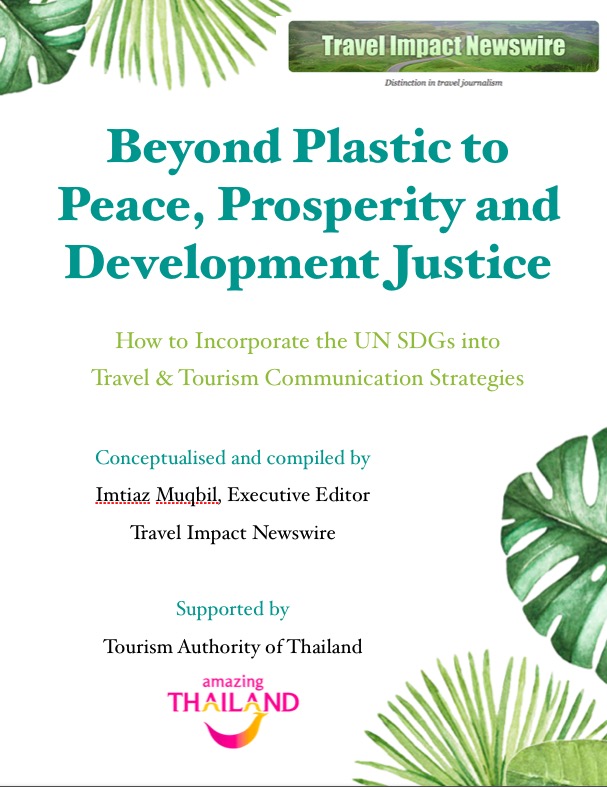
The first of its kind in Thailand, and possibly ASEAN, the course will help industry communicators brainstorm ideas to enhance visibility and exposure of the UN SDGs, and set up systems to measure impact. The training manual will be distributed FREE of cost.
Today, global Travel & Tourism has prioritised discarding the use of plastic, amongst other environmental protection activities. But the SDGs go far beyond plastic. They focus on building peace and justice, socio-cultural integration, improving working conditions, and much more. While the anti-plastic campaign is important, Travel & Tourism has a long way to go in embracing the full breadth and depth of the UN SDGs.
The TAT supported the manual as part of its over-arching strategy to build a new era of “tourism with responsibility and sustainability” and better balance the marketing and management aspects of a promising economic sector. Taking the lead now requires generating a strong following.
When I approached TAT Deputy Governor (Marketing) Mr Tanes Petsuwan earlier this year, I noted that the true value of the UN SDGs is sparsely understood in Travel & Tourism, especially amongst the middle and junior-level. One of the many reasons is that the SDGs are poorly communicated system-wide.
For example, about half of the UN SDGs relate to environmental and natural issues. As they fall within politically-correct comfort zones, they get all the attention. Many other equally relevant goals, such as health, education, inequalities, decent work, peace and justice, partnerships and more, get low priority.
The years 2019 and 2020 provide the perfect timing to start rectifying this imbalance.
2019 is the year of Thailand’s chairmanship of ASEAN under the theme of “Advancing Partnership For Sustainability.” And 2020 will mark the 60th anniversary of the founding of the TAT which is planning a range of activities to raise the concept of Responsible and Sustainable tourism to a new level.
The training course and manual is the TAT’s contribution to both.
One of the concrete deliverables from Thailand’s ASEAN chairmanship is a Centre for Sustainable Development Studies and Dialogue, to be launched in Bangkok during the 35th ASEAN Summit in November 2019. Another important deliverable of relevance to Travel and Tourism is an ASEAN Training Centre for Social Work and Social Welfare which will provide training courses and curriculum for development in ASEAN.
Both deliverables are rooted in the ASEAN Socio-Cultural Community (ASCC) Blueprint, one of the three pillars of ASEAN to fulfill its mission of “One Vision, One Identity, One Community.” Regrettably, this ASCC Blueprint has long been short-changed against the more widely-known ASEAN Economic Community (AEC) Blueprint.
The communications training manual and course also plugs this gap.
From a policy perspective, the course also highlights how Travel & Tourism can become a part of the solution in advancing the Sufficiency Economy Philosophy of His Majesty the late Thai monarch Rama IX the Great as well as the Thailand 4.0 socio-economic development policy.
Establishing the complementarities between these high-level agreements and reports is a core focus of Thailand’s ASEAN Chairmanship.
All too often, these agreements, plans and policies get ‘lost in translation’ as they are couched in complex language, difficult to read and hence not communicated well. By making them simple and relevant, I have tried to help the entire ASEAN Travel & Tourism industry understand their importance and get involved in pursuit of a solution.
Alongside many of the policy and strategy recommendations of the ASEAN Socio-Cultural Community Blueprint, I have also highlighted the work of the UN World Tourism Organisation in advancing the UN SDGs.
There was no need to reinvent the wheel. The existing body of work only needed some traction. And that’s what this course is all about.
On 23 Sept 2019, I organised a curtain-raiser half-day course for TAT executives from various departments to brief them on its contents, and get some preliminary feedback. TAT Governor Yuthasak Supasorn, an enthusiastic supporter of all things sustainable, told me he really wanted to come but had a prior commitment in Japan that day.
In lieu, the course was attended by Mrs. Srisuda Wanapinyosak, TAT Deputy Governor of International Marketing – Europe, Africa, Middle East and Americas. She told the TAT staff that she personally had learnt a lot, and clearly saw the value and benefits from a policy and practical perspective, especially to advance one of her priority projects, viz., a manual of Responsible Tourism sites and attractions in Thailand.
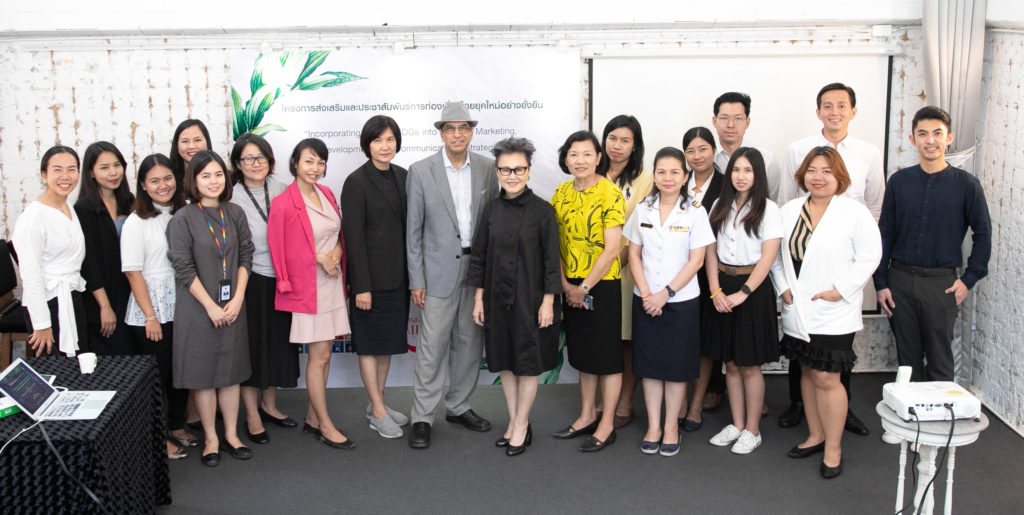
Mrs. Srisuda Wanapinyosak (centre, in black dress), Imtiaz Muqbil and the team of TAT executives at the manual introduction workshop.
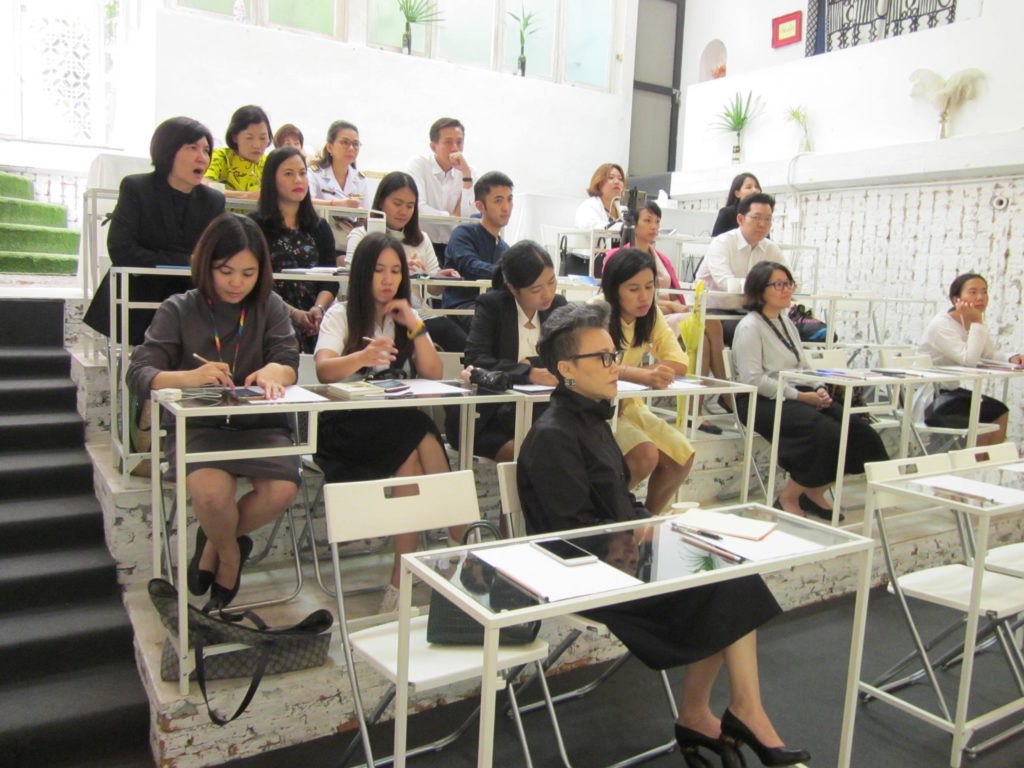
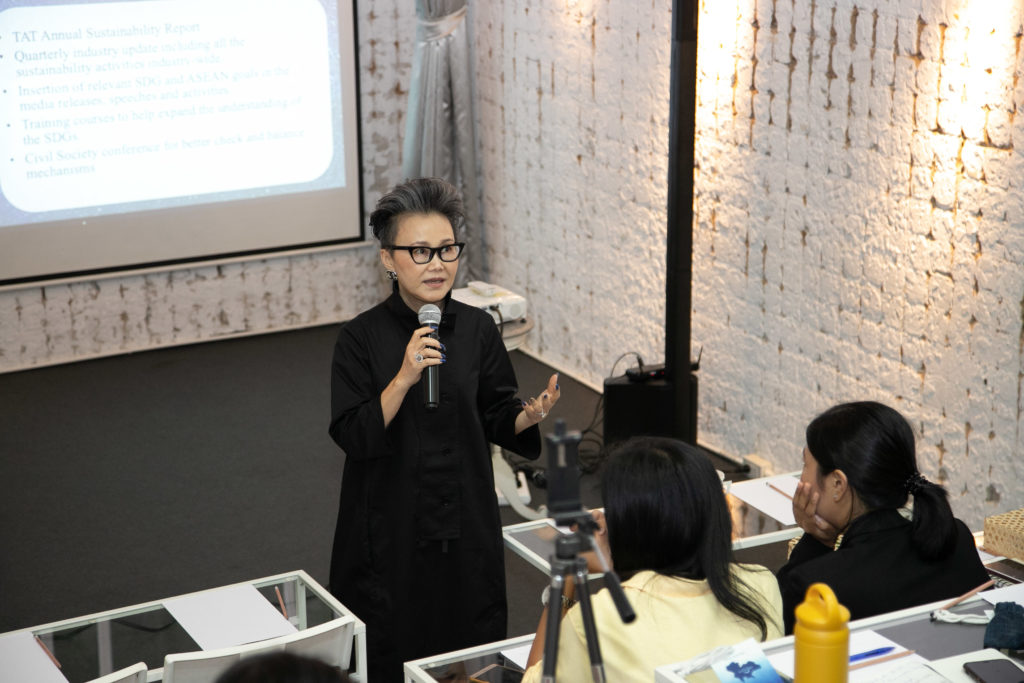
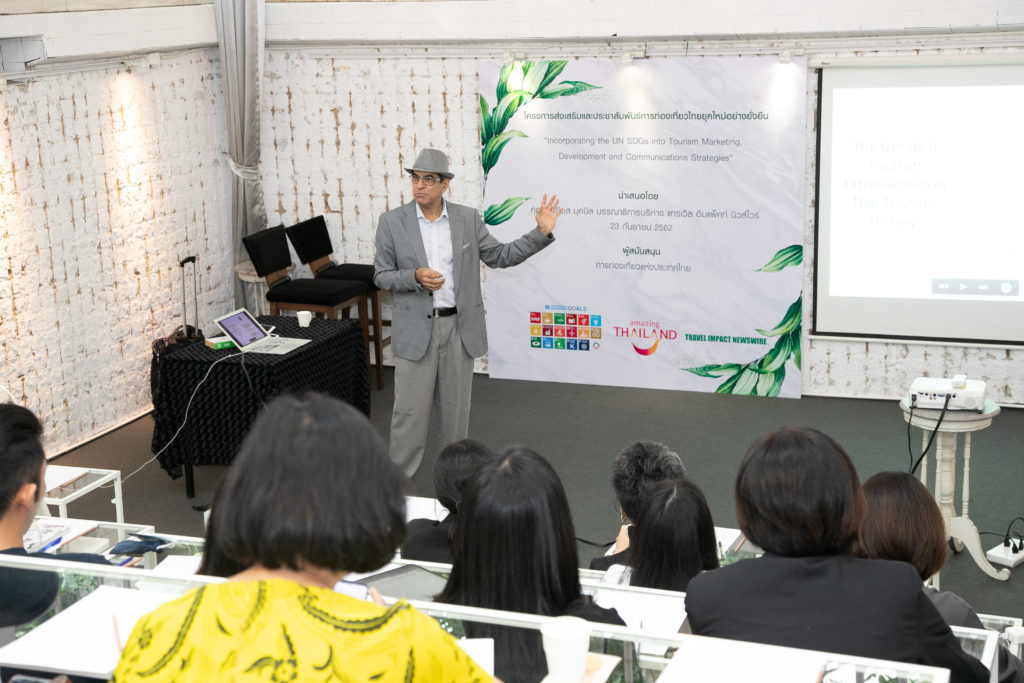
This training manual then becomes of the “accelerating actions” required by the U.N. in the upcoming 2020-2030 ‘Decade of Delivery’ of the SDGs. As the ASEAN Socio-Cultural Blueprint, the UNWTO policy objectives, and the Sufficiency Economy Philosophy as well as the Thailand 4.0 strategy all share the same goals, boosting awareness and making them relevant at the grassroots level is a vital step towards ensuring their success.
The manual consists of six modules. All are downloadable here FREE OF CHARGE. The original format is in English but is strong on visuals and easily translated into ASEAN languages. The content can also be adapted to suit different audiences.



Liked this article? Share it!